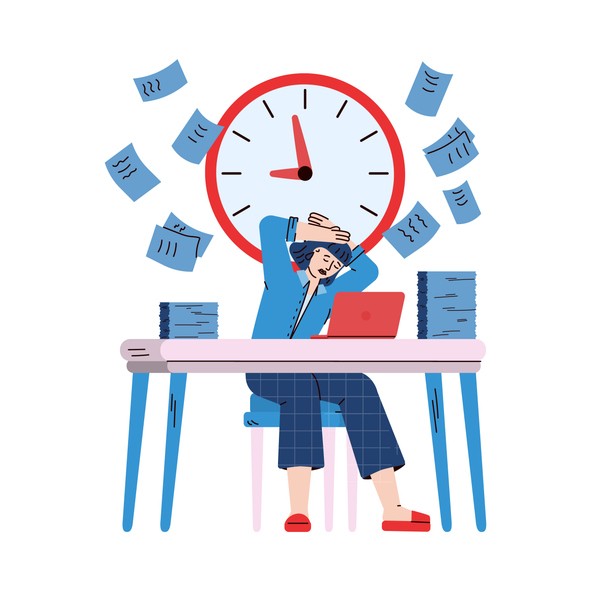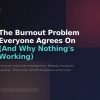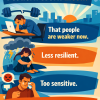
When "Good Enough" Feels Like Failure
A Different Take on Perfectionism at Work
I've been staring at this opening for about twenty minutes now. Started with something clever about perfectionism being ironic, deleted it. Tried a statistic, felt preachy. Here's the truth: I'm supposed to write about perfectionism and productivity, and I keep getting stuck on whether this intro is good enough. Which is... yeah. The whole problem, isn't it?
The Zone Thing That Makes Perfectionism Make Sense
Here's what nobody tells you about perfectionism: it gets worse as your capacity drops. And it shows up completely differently depending on what zone you're in.
In 🟢 Green Zone (clear, focused, actually fine), perfectionism is manageable. You polish things because you have the bandwidth and you genuinely care about quality. You can catch yourself over-editing and choose to stop. It's a preference, not a compulsion.
In 🟡 Yellow Zone (managing but stressed), perfectionism becomes a control mechanism. Everything feels slightly out of control, so you grip harder on the things you CAN control. That email. That slide deck. The formatting. It's not about quality anymore—it's about feeling like you're handling something, anything.
In 🔴 Red Zone (overwhelmed, making mistakes), perfectionism is pure paralysis. You literally cannot start because you know you can't do it perfectly and you're already stressed about everything else. So you stare at the blank page for two hours instead of writing garbage and fixing it later.
The brutal insight: You can't overcome perfectionism with willpower or "just letting go" if you're operating in Yellow or Red Zone. Your brain is trying to compensate for compromised capacity by controlling for perfect outputs. That's not a character flaw—that's your nervous system doing what it thinks will keep you safe.
Here's What's Actually Happening in Your Brain
You know that thing where you estimate a task will take an hour and it takes three? There's a name for that – the planning fallacy. We all do it, but perfectionists do it worse because we're not just doing the task, we're doing the task plus seventeen rounds of "but what if I..."
I learned this the hard way last week when a "quick email review" turned into me rewriting the entire thing at 10 PM. My colleague's response? "Thanks, got it." Three hours for a two-word reply.
And here's the thing: that three-hour spiral only happened because I was already in Yellow Zone. If I'd been in Green, I would've caught myself after the first revision. But Yellow doesn't have that capacity. Yellow just spirals.
The stupid-simple hack that actually works: Whatever time you think something will take, add 40%. Not because you're slow. Because you know you're going to fiddle with it. Might as well plan for reality instead of pretending this time will be different. And if you're in Yellow or Red? Double it. Your perfectionism tax is higher when capacity is lower.
Let's Talk About What This Is Actually Costing You
Everyone says perfectionism causes stress. No kidding. But do you know what it's actually costing?
I did the math on my own work last month. Every time I revised something past "done," I tracked it. The damage:
- 12 hours on edits that nobody noticed
- 3 projects that never launched because they weren't "ready"
- Countless Sunday night anxiety spirals about Monday's supposedly "imperfect" work
- Perfectionism kills happiness
That's not productivity. That's theft – from yourself. And here's the kicker: most of that happened in Yellow and Red Zone. When I tracked it against my capacity level, the pattern was obvious. The less bandwidth I had, the more I perfectioned things to compensate.
When you actually track this stuff (and I mean actually track it, not just feel guilty about it), you start to see patterns. Mine was presentations. I'd spend hours on slide transitions that people watched while checking their phones. And I only did that when I was already stressed about other things.
Different Brains, Different Traps
If You're Neurotypical
Your perfectionism probably sounds like "What will they think?" The fear that one mistake reveals you as incompetent. Here's what helped me: deliberately sending B+ work on low-stakes stuff. Internal emails. Meeting notes. The world didn't end. Actually, nothing happened at all. But I could only do this when I was in Green Zone. In Yellow, the anxiety was too loud.
If You're Neurodivergent
This might be about masking – trying to appear "normal" through flawlessness. But that mask is expensive. Every minute you spend perfecting is energy stolen from the work that actually matters. What if people knowing you're human actually makes you more trustworthy, not less? Consider exploring focus and self-management techniques designed for your brain's unique wiring. And know that ADHD brains operate in Yellow/Red more often—which means perfectionism hits harder and more often.
If It's Your Environment
Sometimes it's not you. I worked at a place where typos in emails got mentioned in performance reviews. In that case, perfectionism isn't a problem – it's survival. The skill becomes knowing when to go all-out and when to save your energy for battles that matter. And protecting your Green Zone time for the things that actually require perfection.
The Part Nobody Talks About
There's this thing that happens around 3 PM where I convince myself that if I just push through and perfect this one thing, I'll feel better. I'll be "done." I'll have earned my rest.
It's a lie. There's always another thing. And 3 PM is peak Yellow Zone time for most people—you've burned through your Green Zone capacity by lunch, and now you're trying to perfect your way back to feeling in control.
Julie Smith has this bit in her book about how perfectionism creates procrastination – we literally can't start because we know we can't meet our own impossible standards. That hit me hard. I had a report sitting untouched for two weeks because I knew I couldn't make it perfect, so why start?
That's Red Zone perfectionism. You're so flooded that perfectionism doesn't even look like polishing anymore—it just looks like not starting. Paralysis dressed up as high standards.
What actually works (by zone):
🟢 Green Zone: You can reason with yourself. "Is this polish worth the time?" usually works here.
🟡 Yellow Zone: Set hard time limits. "30 minutes then ship it" bypasses the negotiation your brain wants to have.
🔴 Red Zone: Lower the bar for starting, not finishing. Open the doc. Type garbage. Add "DRAFT - honestly, this needs work" to the subject line. Move. You can't perfect your way out of Red. You can only start your way out.
A Weird Thing That Happened
Last month, I submitted a project proposal that was maybe 75% of what I wanted it to be. Formatting was off. One section was basically bullet points. I was mortified.
It got approved immediately. My boss said it was refreshingly clear.
I'm still processing that. But here's what I realized: I could only ship that imperfect work because I was in Green Zone when I hit send. If I'd been in Yellow, I would've spent another three hours "fixing" it into something worse.
What to Actually Do About This
You don't need another framework. You need to start. Pick something you've been perfecting. Anything. Set a timer for 30 minutes. When it goes off, ship it. Send it. Submit it. Whatever "done" means for that thing.
Yes, you'll feel uncomfortable. Yes, your brain will scream. Do it anyway.
- Try it again tomorrow
- Make it a thing – one "good enough" task per day for a month
- Track the time you save AND what zone you were in when you did it
- Notice what nobody notices
- Notice that you can only do this consistently when you're protecting Green Zone time
Real talk: If you're trying to overcome perfectionism while operating in Yellow/Red most of the time, you're fighting the wrong battle. The battle isn't "let go of perfect." The battle is "get back to Green Zone where you have capacity to make that choice."
The Real Questions
What if you're already good enough at 80%?
What if the last 20% you're killing yourself over is invisible to everyone but you?
What if "good enough" consistently beats "perfect eventually"?
What if you only perfectionate things when you're already stressed, and the perfectionism is a symptom, not the problem?
I don't have answers. I'm literally figuring this out as I write. But I'm starting to think that sustainable B+ work beats unsustainable A+ work every time. Not because we should lower our standards, but because perfectionism isn't actually a high standard – it's just anxiety in a productive-looking costume. And it gets worse when your capacity is compromised.
Learn more about how capacity affects everything at the Zones Framework page.
Ready to Break Free from the Perfect Trap?
Look, I don't know if this helps. This whole piece feels unfinished to me, like it needs another edit pass, better transitions, more research. But I'm posting it anyway because that's literally the point.
If you want more structured approaches to dealing with this stuff, try the free 30-minute reset. It'll help you figure out what zone you're in and give you tools that work for that capacity level—not generic advice that assumes you're operating with full bandwidth.
But maybe unpolished is what we need right now. Maybe good enough is actually good enough. Especially when you're in Yellow or Red and perfect isn't even possible.
Or don't. But if you do, remember: the discomfort you feel hitting "send" too early? That's not failure. That's freedom. Each 30-minute reset helps you figure out what zone you're in and gives you a tool that works there. Relief now, plus a tool you can keep using.
Start today. Ship something imperfect. Notice how the world doesn't end. Then notice what zone you were in when you managed to do it.









